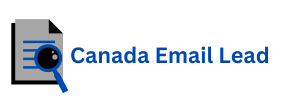Search engine algorithms are set up for “honest” promotion. Link purchases, keyword spamming, and other attempts to artificially improve site positions are tracked. Violating sites are penalized automatically – using built-in algorithms (filters), and Google employees themselves can do this manually.
The most common reasons for getting under the filter:
- Bulk link buying . From the search engines’ point of view, link buying is an attempt to manipulate search results. If they detect such actions, the site may fall sharply in ranking. The most characteristic sign of link buying is a sharp increase or decrease in their number.
- Non-unique or over-optimized content . If you place someone else’s text on your site or add keywords to it too diligently, this can also lead to sanctions.
- Using hidden text . One of the methods of “black” SEO is placing two types of content on the page: the usual one – for users and one containing all the necessary keys, but meaningless – for the search bot.
- Affiliate sites : Create a network of sites that link to each other, thereby increasing your own authority.
The application of sanctions often explains why a site’s ranking has dropped sharply.
How to understand that you have been filtered
The main sign is that the main page is not displayed in search results. Select a large fragment of text from it and copy it into the search bar. The site under the filter will not be displayed in the search results.
You can also see notifications about sanctions in the search engine webmaster dashboards. Additionally, for Google, look in Search Console, in the “Manual Actions” tab. Google Webmaster Tools will help you find out why your site’s positions are falling. Here you can learn about manual sanctions that were applied by the search engine, as well as problems detected by GoogleBot.
How to fix the situation
Find the reason for the sanctions and correct the shortcomings. For additional information, you can contact Google support. If the reason is low-quality links, the search engine has the ability to close them from indexing.
You can get under the filter because of content due to copy-pasting. In this case, contact support with evidence that the text on your portal was published earlier. If you have posted plagiarism or over-optimized text, it is best to get rid of it. If it contains important information for the reader, you can close it from indexing.
Changing search engine algorithms
From time to time, search engines change their methods for assessing the quality of sites. As a result, a site may begin to lose its own positions, even if you have not carried out any work on it that could affect this. You can check in two ways:
- Competitive analysis . Check the visibility of your main competitors and other sites in your niche. If it has also started to decrease, then most likely the reason is a change in algorithms.
- Keeping up with Google announcements and news . Often this way you can learn in advance and prepare for upcoming changes.
A striking example of a relatively recent change in algorithms was the sharp drop in the rankings of medical-related sites.
What to do
To find out why a site is losing positions, you should collect information about changes in the evaluation system as quickly as possible. Try to use primary sources: Google publications, conference announcements, etc. Study competing resources whose visibility has not suffered too much or has remained at the same level.
Sometimes the best way out is to wait until optimizers can develop an effective way to promote a site with updated algorithms, and turn to an experienced specialist whose portfolio includes cases of promotion in your niche, on the basis of which a brief will be drawn up on improving positions on the Internet.





